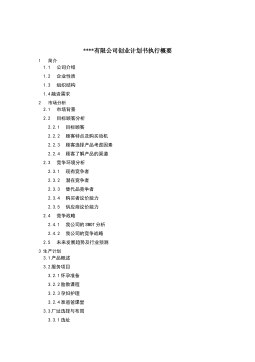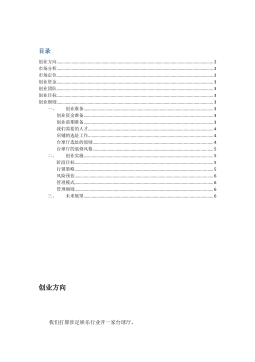D台资企业物流外包管理研究
摘要物流外包是塑造企业核心竞争力,利用社会专业化资源的有效方式之一,现代企业越来越多地采用这种运营模式。据统计,国外物流外包的比例已经高达75%以上,而国内物流外包的比例却只有18%左右,其中外商投资企业的物流外包发展水平明显高于国内企业。对于外商之一的台资企业来说,产品的成本和利润是非常透明的。为了进一步降低经营成本、提高竞争力、降低企业风险以及解决生产企业资源有限等问题,台资企业必须在原有物流外包的基础上更高效地管理物流外包的每个环节,包括物流供应商、操作系统以及人员执行力等等,并尽量避免物流外包过程中可能造成的不必要的差错或损耗。台资企业的物流外包在历经数十年发展演变之后,已经逐步趋于成...
相关推荐
-
我国基层财政困难的制度成因分析与对策研究VIP免费
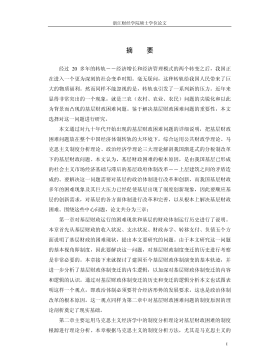
 2024-09-20 25
2024-09-20 25 -
我国煤电产业链纵向交易合约机制研究VIP免费
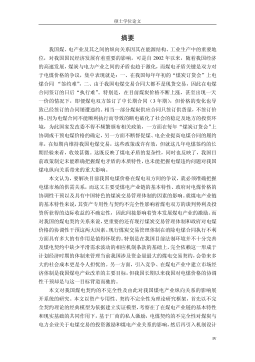
 2024-09-20 23
2024-09-20 23 -
生产要素视角下的上海市产业结构优化研究VIP免费
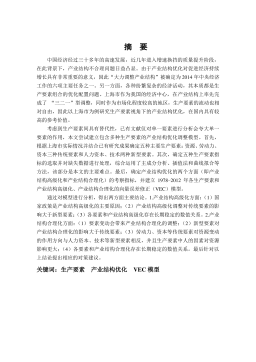
 2025-01-09 6
2025-01-09 6 -
我国银行业结构与经济结构关系研究VIP免费
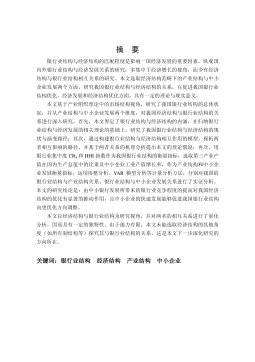
 2025-01-09 7
2025-01-09 7 -
大数据视角下农业供应链金融研究VIP免费
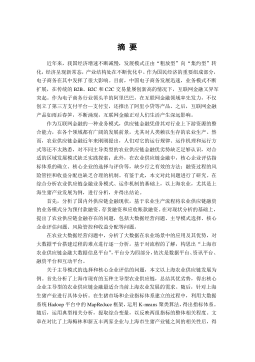
 2025-01-09 6
2025-01-09 6 -
跨国大型综合超市的规划研究VIP免费
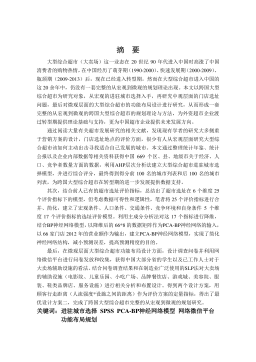
 2025-01-09 6
2025-01-09 6 -
跨境电商农产品质量安全问题研究VIP免费
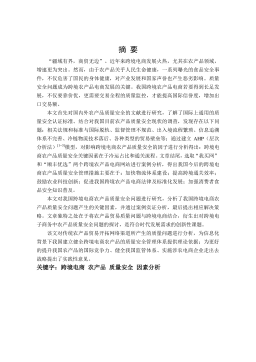
 2025-01-09 6
2025-01-09 6 -
世界市场的虚拟化与我国国际电子商务发展方向研究VIP免费
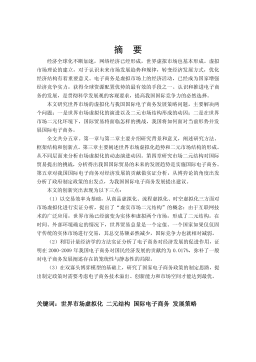
 2025-01-09 6
2025-01-09 6 -
中国政府对电力行业的价格规制问题研究VIP免费
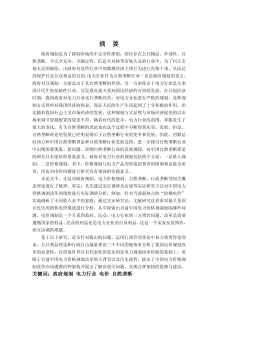
 2025-01-09 6
2025-01-09 6 -
中小企业信息化系统集成技术研究VIP免费
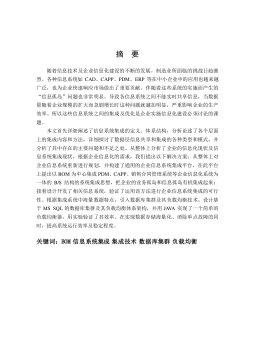
 2025-01-09 11
2025-01-09 11
相关内容
-

跨国大型综合超市的规划研究
分类:高等教育资料
时间:2025-01-09
标签:无
格式:PDF
价格:15 积分
-

跨境电商农产品质量安全问题研究
分类:高等教育资料
时间:2025-01-09
标签:无
格式:PDF
价格:15 积分
-

世界市场的虚拟化与我国国际电子商务发展方向研究
分类:高等教育资料
时间:2025-01-09
标签:无
格式:PDF
价格:15 积分
-

中国政府对电力行业的价格规制问题研究
分类:高等教育资料
时间:2025-01-09
标签:无
格式:PDF
价格:15 积分
-

中小企业信息化系统集成技术研究
分类:高等教育资料
时间:2025-01-09
标签:无
格式:PDF
价格:15 积分


